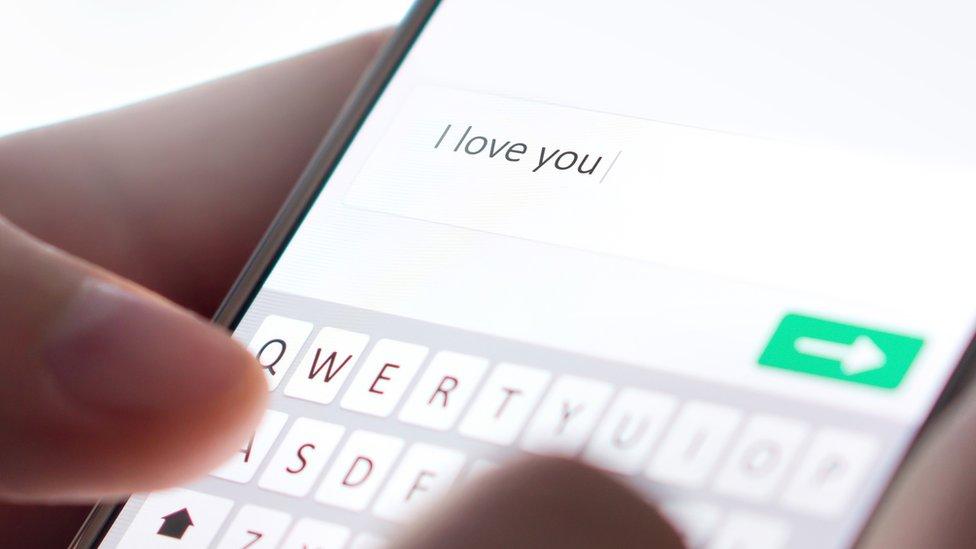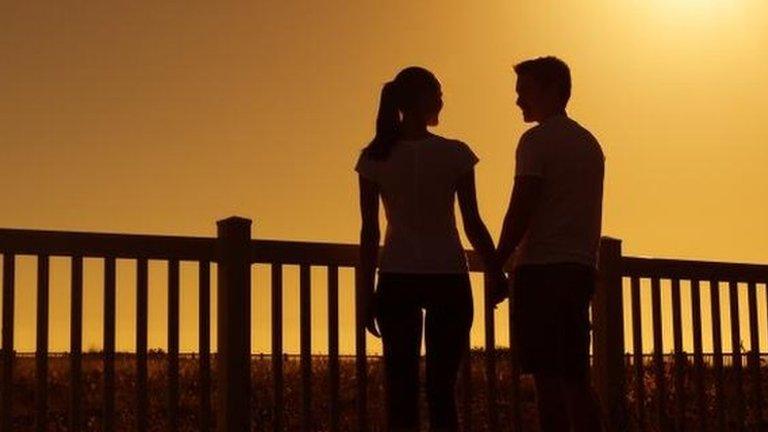Nottinghamshire woman duped by 'soul mate' in online dating fraud
- Published

The woman said the experience has left her at "rock bottom"
A woman who was conned out of thousands of pounds by a romance fraudster has said it has taken her to "financial and emotional rock bottom".
The woman spent £8,500 on a man she thought was her "soul mate" before realising she was being duped.
Sarah, not her real name, wants to stop others going through the same ordeal.
Nottinghamshire Police said it fears such cases could become more common as coronavirus restrictions risk people feeling more isolated.
The scam began last year when the woman, from Nottinghamshire, set up an online dating profile on Our Time, a site for people over 50, and started speaking to "Adam".
"Adam" claimed he was a 52-year-old electrical engineer from the Nottinghamshire village of Keyworth who was working in Benin, Africa.
Sarah, a psychologist, said she had taken years to recover emotionally from a break-up with her husband.
She told the BBC: "I just wanted to be loved."
She and "Adam" formed a bond, speaking about families, meeting up and going on a dream holiday to Venice together.

The pair discussed their "dream" of visiting Venice together
"I'd already been through so much; I genuinely thought this was my second chance," Sarah said.
"I truly believed he was my soul mate. It was too good to be true."
'All a fantasy'
They made plans to meet up last Christmas and she sent money for his tickets.
He never made it, claiming he could not get a flight.
After this, she sent him thousands more via bank transfers and Bitcoin, cashing in three pensions and taking out a £2,000 overdraft.
She also sent him a MacBook.
She added she believes the coronavirus crisis prolonged the fraud as it gave him reasonable excuses not to see her.
But by this summer, she said she realised, "it was all a fantasy".
She now fears not being able to pay her bills.
She said: "It has taken me to emotional and financial rock bottom.
"I hope [by speaking out] I can stop another person going through the pain I feel."
No arrests have been made.
Det Insp Ed Cook said: "Nationally there has been a rise in this kind of crime in the past year.
"Potentially there are more people spending more time at home on social media and becoming more isolated."
He urged people to check on friends and family members, and for anyone experiencing what Sarah did to get in touch with them.

Follow BBC East Midlands on Facebook, external, Twitter, external, or Instagram, external. Send your story ideas to eastmidsnews@bbc.co.uk, external.
- Published15 May 2020
